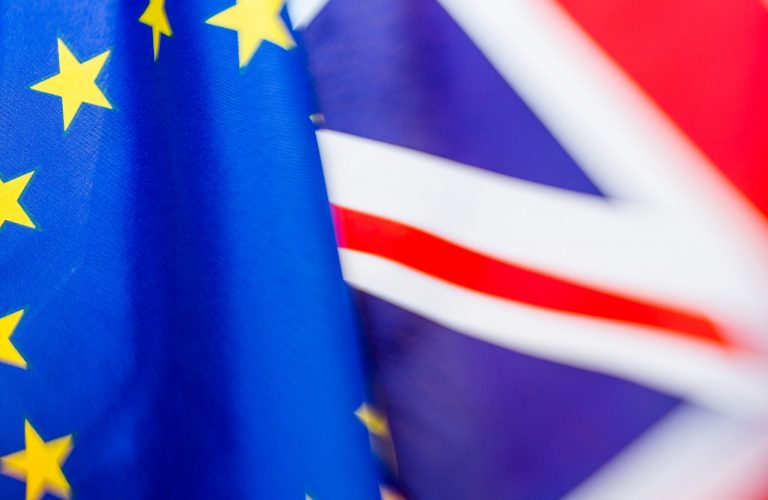The European Parliament has just adopted by an overwhelming majority its position on the negotiations on the future relationship with the United Kingdom. The resolution was jointly drafted by all pro-European political groups and contains clear positions on all aspects of the future relationship. The European Parliament makes clearer and sharper statements on fair competition („level playing field“) than the EU Commission in the area of financial markets and financial crime.
MEP Sven Giegold, financial and economic policy spokesperson of the Greens/EFA group commented:
„The time for special treatment of the UK is over. The British government’s attempt to give its London financial centre permanent and comprehensive access to the European financial system for decades is audacious. The EU will not let the decision as to which British financial market rules are compatible with European rules be taken out of its hands. Equivalence is not a permanent subscription, but a revocable privilege. What already applies to all countries outside the single market will also apply to Britain. If the United Kingdom deviates from the European rules, it must expect to lose access to the European financial market.
With today’s decision, Parliament is also putting its finger in the wound of British tax havens. Even today, the British overseas territories are already deliberately undercutting European rules. The European Parliament has made it clear that those who continue to operate tax havens cannot have access to the EU financial market at the same time. We will neither accept tax havens in the Caribbean nor on the Thames.”
—
Here the relevant extracts of the post-Brexit Resolution of the European Parliament (emphases are mine)
– commitments on services should be made with the aim to deliver a level of liberalisation in trade in services well beyond the parties‘ WTO commitments, building on recent EU FTAs, while safeguarding the high quality of Union’s public services in accordance with the TFEU and in particular Protocol 26 on Services of General Interest; in addition, audio-visual services should be excluded from provisions related to liberalisation; reiterates that under an FTA market access for services is limited and always subject to exclusions, reservations and exceptions; all modes of supply of services should be covered, including commitments on the movement of natural persons across borders (Mode 4) and provisions, linked to EU rules and the respect for equal treatment of workers and recognition of professional qualifications; insists that the arrangements should include provisions on market access and national treatment under host state rules to ensure that the EU services providers are treated in a non-discriminatory manner, including with regard to establishment; underlines that the new arrangements should allow for the temporary entry and stay of natural persons for business purposes with the aim to provide services;
– in order to safeguard financial and regulatory stability and to ensure the full respect of the EU regulatory regime and standards and their application, prudential carve-out and limitations in the cross-border provisions of financial services are a customary feature of EU trade agreements and should be included in this one;
14. Stresses that, for an FTA to truly promote the EU’s interests, the following objectives should be included in the negotiating directives:
a level playing field is to be guaranteed through robust commitments and enforceable provisions on competition and state aid, relevant tax matters (including the fight against tax evasion, avoidance and money laundering), full respect of the social and labour standards (including equivalent levels of protection and safeguards against social dumping), environmental protection and climate change related standards, promotion of the United Nations’ Sustainable Development Goals, a high-level protection of consumers and sustainable development; the provisions should ensure non-lowering of standards, while empowering both parties to modify commitments over time to lay down higher standards or include additional areas; considers that the commitments and provisions should be enforceable by autonomous interim measures, a solid dispute settlement mechanism and remedies, with a view to dynamic alignment;
18. Recalls its determination to prevent any kind of dumping in the framework of the future UK-EU relationship and reminds to this effect that alignment on environmental, labour and social, relevant tax matters and state aid policies is key to prevent it;
21. Strongly believes that the UK should adhere to the evolving standards on taxation and anti-money laundering legislation within the EU acquis, including tax transparency, the exchange of information on tax matters and anti-tax avoidance measures, and should address the respective situation of its Overseas Territories, its Sovereign Base Areas and its Crown Dependencies and their non-compliance with EU good governance criteria and transparency requirements;
Equivalence in financial services
61. Recalls that UK based companies will lose passporting rights;
62. Considers that market access should be based on equivalence decisions, provided if the EU is satisfied that UK regulatory and supervisory regime and standards are and continue to be fully equivalent to those of the EU, reflecting the provisions agreed upon for a level-playing field; believes that once equivalence has been granted towards the UK, an effective mechanism has to be put in place to guarantee that equivalence is maintained over time and reminds that the EU can withdraw unilaterally the status of equivalent at any moment;
63. Considers that any future framework should safeguard financial stability in the EU and respect its regulatory and supervisory regime and standards and their application, while maintaining the EU regulatory and decision-making autonomy;

